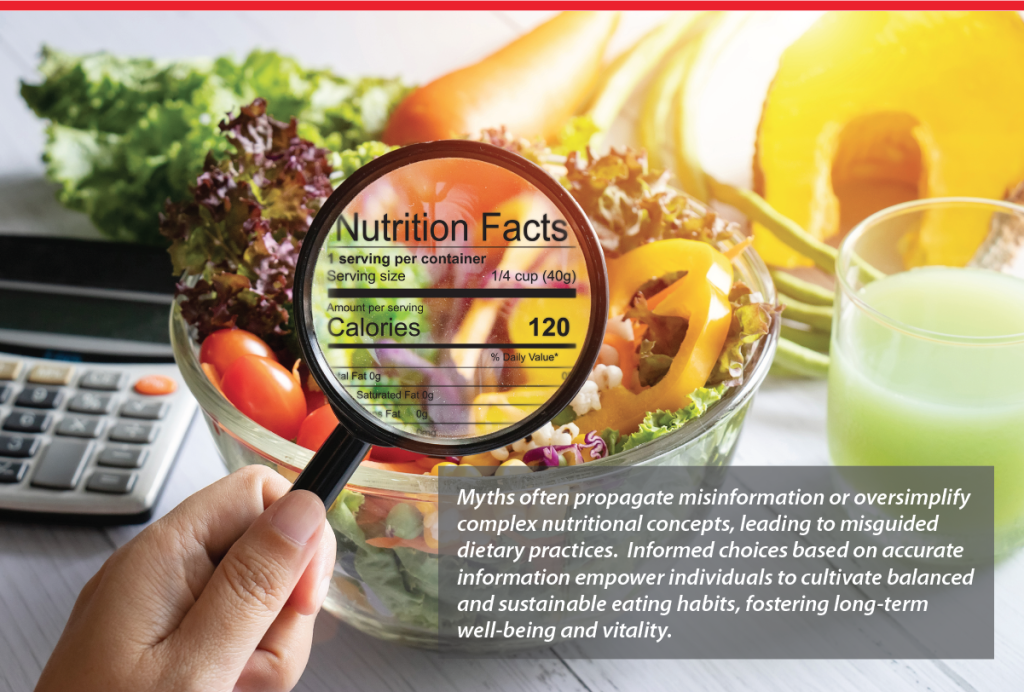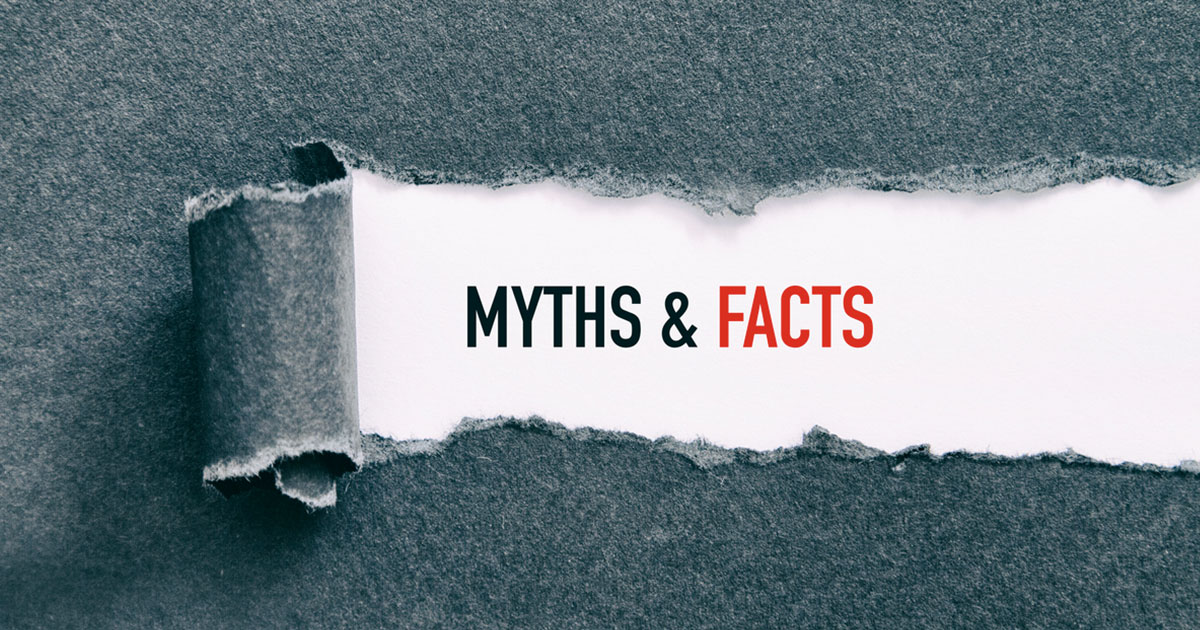In the ever-evolving landscape of nutrition, myths and misconceptions often abound, leading to confusion about what constitutes a healthy diet. In this edition of Healthy Living, we’re diving into some of the most common nutrition myths and shedding light on the truth behind them.
Myth #1: Carbs are the Enemy
Carbohydrates have gotten a bad rap in recent years, with many diets vilifying them as the root cause of weight gain and health problems. However, not all carbs are created equal. Whole grains, fruits, vegetables, and legumes are rich sources of complex carbohydrates, which provide essential energy and nutrients. It’s the refined carbs, such as sugary snacks and white bread, that should be consumed in moderation. Instead of cutting carbs entirely, focus on incorporating whole, unprocessed sources into your diet for sustained energy and overall health.1
Myth #2: Fats Makes You Fat
For decades, the notion that eating fat leads to weight gain prevailed. However, research has shown that not all fats are detrimental to health. In fact, healthy fats, such as those found in avocados, nuts, seeds, and fatty fish, are crucial for brain function, hormone production, and nutrient absorption. It’s the overconsumption of trans fats and saturated fats, often found in processed foods and fried items, that can contribute to health problems. Embrace the inclusion of healthy fats in your diet for optimal well-being.2
Myth #3: Skipping Meals Helps with Weight Loss
The belief that skipping meals leads to weight loss is pervasive, but it’s a strategy that often backfires. When you skip meals, you’re more likely to overeat later in the day and make unhealthy food choices due to increased hunger and cravings. Additionally, skipping meals can slow down your metabolism, making it harder to lose weight in the long run. Instead of skipping meals, focus on balanced, nutrient-rich meals and snacks throughout the day to keep your energy levels stable and promote healthy weight management.3
Myth #4: You Need to Detox Your Body
Detox diets and cleanses promise to rid the body of toxins and promote weight loss, but the reality is that our bodies are equipped with highly efficient detoxification systems, namely the liver and kidneys. These organs work tirelessly to eliminate waste and toxins from the body, and there’s little scientific evidence to support the efficacy of detox diets in enhancing this process. Instead of restrictive cleanses, focus on nourishing your body with a variety of whole foods and staying hydrated to support its natural detoxification processes.⁴
Myth #5: Supplements Can Replace a Healthy Diet
While dietary supplements can be beneficial for filling nutrient gaps, they’re not a substitute for a balanced diet rich in whole foods. Whole foods contain a plethora of vitamins, minerals, antioxidants, and phytonutrients that work synergistically to promote health and prevent disease. Supplements should complement, not replace, a nutritious eating pattern. Aim to obtain the majority of your nutrients from whole foods and use supplements as needed to support your overall health and well-being.⁵

Myth #6: Organic Foods are Always Healthier
While organic farming practices can reduce exposure to pesticides and antibiotics, organic foods aren’t inherently more nutritious than their conventional counterparts. Both organic and conventional foods can be part of a healthy diet, so prioritize variety, freshness, and nutrient density when making food choices.⁶
In conclusion, navigating the world of nutrition can be challenging, especially with the abundance of conflicting information out there. By debunking common myths and focusing on evidence-based dietary principles, you can make informed choices that support your health and vitality.
©2024HealthSpot References: (1) Source: Harvard T.H. Chan School of Public Health – “The Nutrition Source” (2) Source: American Heart Association – “Know Your Fats” (3) Source: Mayo Clinic – “Weight Loss: 6 Strategies for Success” (4) Source: National Center for Complementary and Integrative Health – “Detoxes and Cleanses: What You Need to Know” (5) Source: Academy of Nutrition and Dietetics. “Nutrient Supplements: Who Needs Them?” (6) Source: Academy of Nutrition and Dietetics – “Organic Foods: Are They Safer? More Nutritious?”

